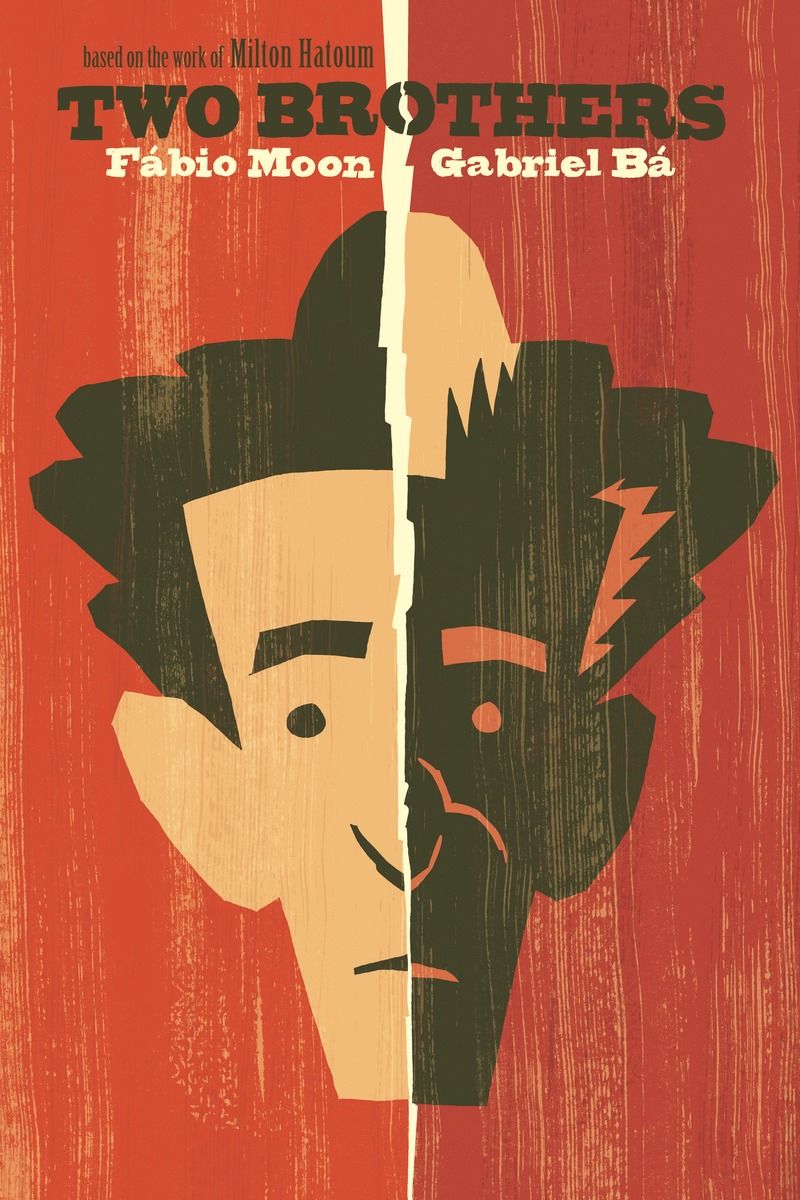Based on Milton Hatoum's 2002 novel "The Brothers," Fábio Moon and Gabriel Bá's stunning graphic novel "Two Brothers" is the tragic and haunting story of Yaqub and Omar, Lebanese twins born in the Brazilian port city of Manaus. Much like the characters, the book is full of passions, bursting to life with rage, joy, fear, determination and even vengeance. Reminiscent of the work of authors like Gabriel GarcÃa Márquez and Mario Vargas Llosa, the story is underscored by a tragic sense of longing that seeps from its pages. As good as Moon and Bá's work has been in the past, this is a statement piece, a graphic novel that transcends the medium and becomes a greater and more enriching tale with every turn of the page.
Moon and Bá pick and choose the important elements of the story to adapt, pushing it forward with confident linework that effectively matches the wistful and tragic voice of the narrator. The sketchy style, rendered in black and white, creates a feeling of memory, as if the panels are recollections rather than recreations. The artwork employs many curves and small, hard angles, embracing the feeling of passion that is emblematic of the locale. There are breathtaking sequences, such as matriarch Zana's birthday, when one brother brings a strange woman to the party; Moon and Bá tell a universe of story within several pages of silent, well-staged panels, allowing the characters' faces and actions to do all the work needed to set tone and mood as the woman sensually dances and captivates attendees both young and old. Though the sexual exploits of the characters are depicted in joyful, graphic embraces, the violence is often pushed just off panel, establishing those scenes to be almost so personal the book wishes to keep those moments to itself.
The story explores themes of balance, from the destructive nature of carnal pursuits to the loneliness of abstinence. Many of the proceedings revolve around the fallout of Yaqub and Omar's decisions; Moon and Bá depict the brothers as haunting presences within their family home even when they are not there. Yaqub, the studious and reserved brother, creates a sad calm during his visits to the story. Though he's less outwardly passionate than his far more hedonistic brother Omar, he still burns with a seething animosity over a childhood incident. It's painful to read, but -- through this -- Moon and Bá paint him as both a tragic figure and the propellant of his own isolation. Though both brothers believe the path he chooses is away from the other, they always wend their way back into each other's lives, escalating the tension and upping the stakes of their desire to quench the animosity they experience.
Readers will also recognize that the scope of Moon and Bá's vision extends beyond just reach of the family, balancing the macro with the micro. As the brothers grow and struggle throughout the story and their distance slowly unravels the thread binding their family together, so too does the backdrop unspool as well. Set amidst Brazil's own search for a national identity, Manaus -- a small port town along the Amazon that found fortune in the export of rubber -- evolves through military crackdowns, the introduction of Westernized vice and, eventually and inevitably, industrialized capitalism.
"Two Brothers" is one the best graphic novels of 2015 and deserves a space on the shelf of every serious fan of the medium. It's a work of art that shows the power of sequential storytelling and its ability to enhance and enrich an already captivating story through mis en scene and confident artwork. Kudos to Moon and Bá, two artists with an already stellar track record; they may have just created the best work of their career.

